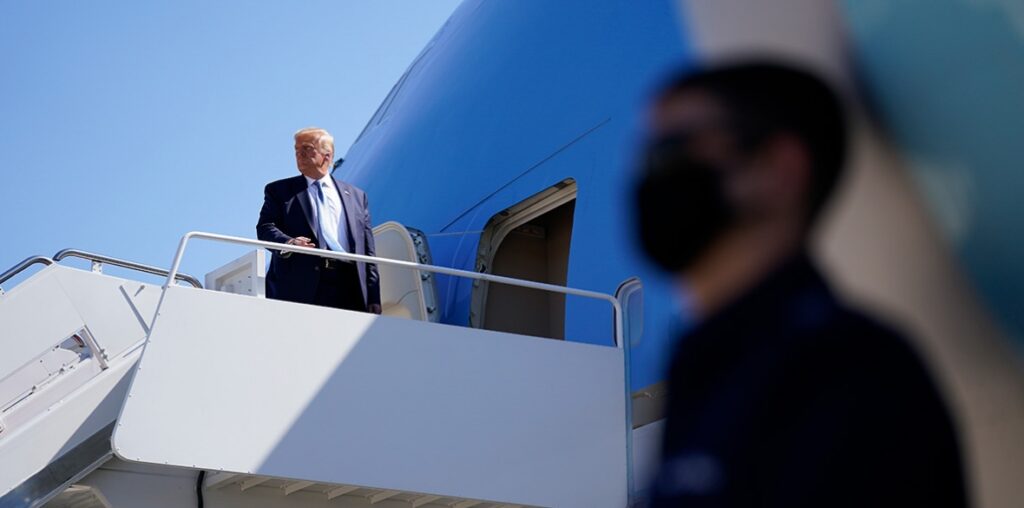THE US’s recent action of seizing the cargoes of four oil tankers allegedly carrying Iranian petrol to Venezuela has provided the Trump administration with the perfect opportunity to simultaneously attack two of its enemies in election year.
Iran and Venezuela, both oil-producing countries, are subject to swingeing illegal sanctions through which the US seeks to crush their governments and achieve regime change.
The US claims that the fuel shipment in the four foreign-flagged oil tankers was organised by the Islamic Revolutionary Guard Corps (IRGC), which it designates as a terrorist organisation, and was bound for Venezuela, in contravention of US sanctions.
Although the US has executed a court warrant for the confiscation and forfeit of the cargoes, the government still has to prove its allegations, as the Department of Justice acknowledges.
The Iranian government has disputed the reason for the seizure. Iran’s Foreign Minister Mohammad Javad Zarif tweeted that the fuel was not Iran’s: “‘Pirates of the Caribbean’ have their own judges and courts now. Sadly for them, stolen booty wasn’t Iran’s. Fuel was sold FOB [Free On Board] Persian Gulf. Ship and flag weren’t ours either. Hollow, cheap propaganda doesn’t deflect from miserable failure of US diplomatic malpractice at UN.”
The US failure referred to is the fall of its resolution at the UN security council (UNSC) aiming to extend the UN arms embargo on Iran due to expire in October.
China and Russia voted against the resolution, with only the US and the Dominican Republic supporting it. Eleven other countries abstained, including Britain.
The President of Iran, Hassan Rouhani, accused the United States of using the seizure of the oil cargoes to divert attention from its embarrassing diplomatic defeat, saying: “US lied about seizing four Iran oil shipments in international waters. Neither the tankers nor their flags were Iranian. It was a lie to cover up humiliation at UNSC.”
Whether or not the petrol was Iranian in origin and/or destined for Venezuela, trade between sovereign nations ought to be free from sanctions levied by the US just because it happens to object to their governments’ policies.
In the case of Venezuela, US sanctions against the country have increased massively under Trump.
Following financial sanctions against Venezuela’s state oil company PDVSA in 2017, the US imposed an oil embargo in January 2019 and a blanket ban on all dealings with Venezuelan state entities in August 2019.
The resulting economic blockade — of the type employed against Cuba since the 1960s — has cut deeply into its oil revenues, its main source of income, weakening for example its health infrastructure and its capacity to import key medical supplies and equipment at a critical time, given the Covid-19 pandemic.
The sanctions have also blocked imports of fuel, diluents and spare parts to the country.
As a result, Venezuela has experienced petrol shortages, since the country’s refinery capacity has been severely affected.
To make up the shortfall, in May a major shipment of petrol and alkylate supplies to increase domestic refining capacity arrived in a fleet of Iranian oil tankers, despite threats from the United States.
This trade with Iran replaced its dealings with the Russian oil giant Rosneft, which had been supplying Venezuela with diesel and petrol as well as carrying up to 60 per cent of Venezuela’s crude oil output.
US secondary sanctions on two of its affiliates forced Rosneft to withdraw from business with Venezuela.
Since May, the US has targeted four shipping companies for sanctions and has been reported as considering sanctions against dozens of vessels in a drive to put Venezuela “off limits.”
As Brian Hook, a senior policy adviser to US Secretary of State Mike Pompeo, boasted in an interview in mid-July: “I think the maritime community knows that if you get a phone call to move fuel to Venezuela, that’s an offer that you should not accept.
“Five tankers that did make their way to Venezuela, all their captains were sanctioned and they’re going to face a very tough future economically because they said yes to that offer to move fuel. So we’re going to continue to sanction any sanctionable activity.”
The same approach is being applied to achieve regime change in Iran. In the same interview Hook explained: “Being out of the [Iran nuclear] deal allowed us to apply big pressure on Iran and Iran’s chief source of export revenue is oil … We have collapsed Iran’s oil sector … 2.5 million to 70,000 barrels in about two years.”
Hook, his boss, Pompeo, and Pompeo’s boss, Trump, all seem unconcerned at how sanctions may be impeding the fight against the coronavirus pandemic.
But not so the UN secretary-general Antonio Guterres, who has written to the G20 economic powers, saying: “I am encouraging the waiving of sanctions imposed on countries to ensure access to food, essential health supplies and Covid-19 medical support.
“This is the time for solidarity not exclusion. Let us remember that we are only as strong as the weakest health system in our interconnected world.”
We must stop any drives to a new war for oil on Iran or Venezuela, and call for an end to murderous US sanctions.
Sign the Venezuela Solidarity Campaign statement against US sanctions on Venezuela at bit.ly/stopvenezuelasanctions. Use the Stop the War Coalition online tool to lobby your MP in opposition to sanctions against Iran at mstar.link/StopIranSanctions.
This article originally appeared in The Morning Star

